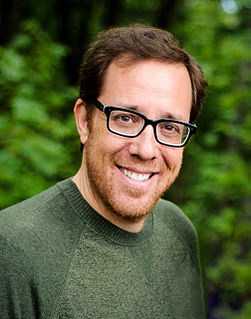A Quote by James Lovelock
Composing computer programs to solve scientific problems is like writing poetry. You must choose every word with care and link it with the other words in perfect syntax. There is no place for verbosity or carelessness. To become fluent in a computer lnaguage demands almost the antithesis of modern loose thinking. It requires many interactive sessions, the hands-on use of the device. You do not learn a foreign language from a book, rather you have to live in the country for year to let the langauge become an automatic part of you, and the same is true for computer languages.
Quote Topics
Almost
Antithesis
Automatic
Become
Book
Care
Carelessness
Choose
Composing
Computer
Computer Language
Country
Demands
Device
Every
Fluent
Foreign
Foreign Language
Hands
Hands-On
Interactive
Language
Languages
Learn
Like
Link
Live
Loose
Many
Modern
Must
Other
Part
Perfect
Place
Poetry
Problems
Programs
Rather
Requires
Same
Scientific
Solve
Syntax
Thinking
True
Use
Word
Words
Writing
Writing Poetry
Year
Related Quotes
The attribution of intelligence to machines, crowds of fragments, or other nerd deities obscures more than it illuminates. When people are told that a computer is intelligent, they become prone to changing themselves in order to make the computer appear to work better, instead of demanding that the computer be changed to become more useful.
A computer is like a violin. You can imagine a novice trying ?rst a phonograph and then a violin. The latter, he says, sounds terrible. That is the argument we have heard from our humanists and most of our computer scientists. Computer programs are good, they say, for particular purposes, but they aren’t ?exible. Neither is a violin, or a typewriter, until you learn how to use it.
Until I reached my late teens, there was not enough money for luxuries - a holiday, a car, or a computer. I learned how to program a computer, in fact, by reading a book. I used to write down programs in a notebook and a few years later when we were able to buy a computer, I typed in my programs to see if they worked. They did. I was lucky.
First, we want to establish the idea that a computer language is not just a way of getting a computer to perform operations but rather that it is a novel formal medium for expressing ideas about methodology. Thus, programs must be written for people to read, and only incidentally for machines to execute.
Films are made the same today, as they've ever been made, in certain respects. The scriptwriting, the pre-production, the storyboarding, and the designing are all the same. The technique of animation has changed, in the sense that rather than drawing it by hand, we use a computer as a tool. The computer has become a pencil to draw or paint the images that we see in a film.
With 'Scratch,' you create computer programs by snapping together graphical programming blocks, much like LEGO bricks, without any of the obscure syntax and punctuation of traditional programming languages. After creating an interactive 'Scratch' project, you can share it on the 'Scratch' website, just as you would share videos on YouTube.
I was really looking at computers as a way to understand the mind. But at M.I.T., my mind was blown by having a whole computer to yourself as long as you liked.I felt a surge of intellectual power through access to this computer, and I started thinking about what this could mean for kids and the way they learn. That's when we developed the computer programming language for kids, Logo.
What is the central core of the subject [computer science]? What is it that distinguishes it from the separate subjects with which it is related? What is the linking thread which gathers these disparate branches into a single discipline. My answer to these questions is simple -it is the art of programming a computer. It is the art of designing efficient and elegant methods of getting a computer to solve problems, theoretical or practical, small or large, simple or complex. It is the art of translating this design into an effective and accurate computer program.
(in response to the question: what do you think of e-books and Amazon’s Kindle?) Those aren’t books. You can’t hold a computer in your hand like you can a book. A computer does not smell. There are two perfumes to a book. If a book is new, it smells great. If a book is old, it smells even better. It smells like ancient Egypt. A book has got to smell. You have to hold it in your hands and pray to it. You put it in your pocket and you walk with it. And it stays with you forever. But the computer doesn’t do that for you. I’m sorry.




































